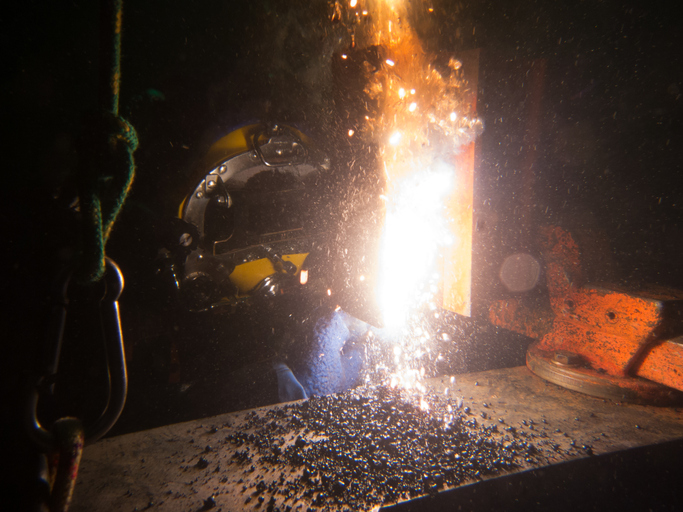
Ever wonder how underwater bridge supports hold together? Or how high-rise buildings maintain integrity so many stories up? Welding is a trade with ancient roots dating back more than four thousand years, but that now operates at the edge of innovation. Learn about a career in welding, where to get training, and find job openings in your local area.
What do welders do?
Welders use hand-held or remotely controlled equipment to create or repair metal products, by cutting and joining different metal parts. They study sketches and specifications to understand the full picture of the structure and materials for a project before they start their work.
Welders’ tools use high heat to soften the material, then fuse metal parts. They work for a wide variety of industries, from car racing and manufacturing to steel beam construction.
Welding projects within one workshop can be very diverse; the variety in the work is one of the advantages many workers experience.
Welding also has hazards; welding arc heat ranges up to 20,000 degrees F, and other equipment can be heavy and dangerous. Safety equipment is required for all welding workplaces. It can be a physically demanding job that requires coordination, lifting, and sometimes climbing.
Welding specialties include: structural welding, aerospace welding, motorsports fabricator, underwater welding, traveling contract welder, robotic welding, metal artist, and more.
Watch a career video about welding.
Job outlook, openings, and wages for welders
- The current national outlook for welders is good; nearly 50,000 welding job openings per year are expected over the next decade.
- Find job openings for welders in your area. Just enter your ZIP code, or city and state in the search box under “Where?” and select “See Jobs”.
- Welding is practiced similarly around the world, and construction projects in other countries may hire welders from abroad, so traveling for work may be an option.
- Nationally (different states may pay higher or lower wages), annual wages range from about $30,000/year at a more entry level wage to more than $65,000 at the higher end.
- Find salary information for welders in your area. Just enter your ZIP code, or city and state in the search box under “Location” and select “Search”.
Training and education for a career in welding
- Most workers starting out in welding have a high school diploma and learn on the job. To start at a higher level, or for career advancement, there are 1-2 year long community and technical college-based programs in welding engineering technology technician and welding technology available.
- Welding apprenticeships offer technical, classroom training alongside working in the field; it’s an “earn while you learn” model that can help you gain higher level skills with guaranteed wage increases as you advance.
- Trained welders may earn a wide variety of professional certifications to qualify for specific positions and continue to advance their skills.
Learn more about a career as a welder.
